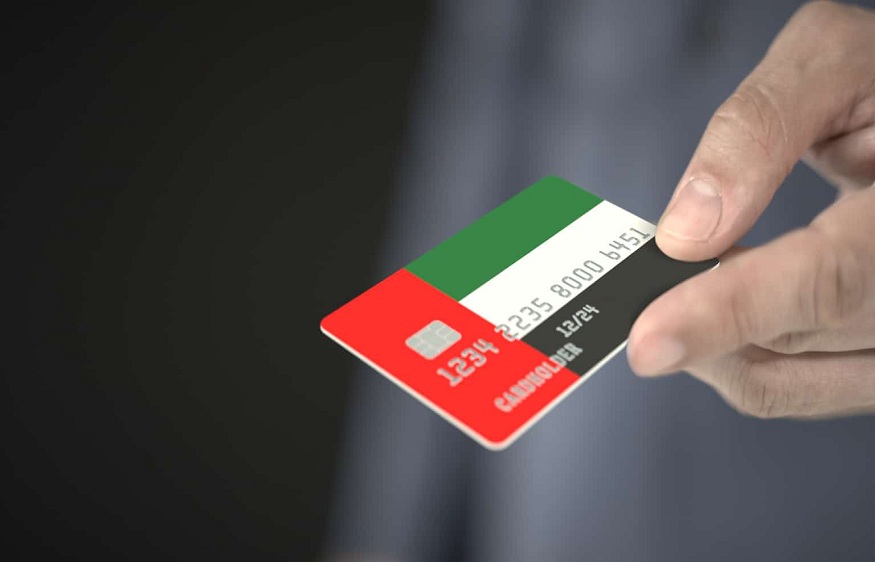
How to Open a Non-Resident Bank Account in UAE – Dubai?
The United Arab Emirates has been a preferred business hub for foreign investors and job seekers for a long time. Nevertheless, if you aren’t a UAE resident, it might be a concern whether or not you can open a bank account in Dubai or any other emirate in the UAE. The government has now made it possible but with certain restrictions. A non resident bank account UAE has fewer privileges compared to those for resident accounts. However, they still can have access to essential financial services.
Opening bank account in Dubai for foreigners mandates the physical presence of the applicant. In addition, the choice of local banks may also be limited. However, some of the most prominent institutions such as Emirates NBD, Abu Dhabi Commercial Bank, Dubai Islamic Bank, etc. offer a variety of options for non-residents to open a bank account in Dubai. In this article, we will explore how to open a non resident bank account UAE and the basic requirements for the process.
Key aspects for opening bank account in Dubai for foreigners
- Consult with a business advisor like Shuraa Business Setup who would suggest you notable banks or financial institutions that can align with your non-resident account requirements.
- Prepare the necessary documents for initial approval. Make sure to double-check them before submission.
- Select a bank that best suits your needs and profile.
- Comply with all banking and governmental regulations.
- Make sure to keep a minimum balance in the account as required by the bank.
Benefits of opening a non resident bank account UAE
You can avail the following benefits by starting a Non-resident account in Dubai, UAE –
- Quick international money transfer: A non-resident bank account in Dubai facilitates both domestic and international transactions. It allows its holder to transfer funds to any country within the transaction limits set in accordance with compliance regulations.
- Foreign currency transactions – A non resident bank account UAE allows its holders to convert funds into multiple currencies including USD, EUR, GBP, etc. However, withdrawing and depositing foreign currency into the account will involve commission as it can be done only in UAE currency, which is dirhams.
- Stability of local currency – The UAE currency is pegged to the US dollar. Hence, it safeguards the account holder’s money from currency fluctuations, thereby facilitating savings and international transactions.
- Reliable banking system – The banking system of the UAE is well-regulated, transparent, and reliable. This instills confidence within residents and non-residents when managing their finances in the UAE.
- Income generation – Non-resident accounts facilitate income generation through interest-bearing savings and long-term deposits. These accounts have competitive interest rates that make them an attractive choice to grow savings over time. Moreover, the stability of UAE dirham lays a solid groundwork for long-term financial planning.
Types of Non-Resident Bank Accounts in the UAE
The types of bank accounts available in the UAE for non-residents are as follows –
Personal bank account:
- Ideal for handling personal finances and savings
- Can be set up under the foreign applicant’s name
- Requires personal visit to the UAE
Business bank account:
- Suitable for international business transactions
- Offers a range of financial services
Steps to open a non resident bank account UAE
Non-residents can open a bank account in the UAE in personal, corporate, or business categories. The essential documents required to open a personal non-resident account are as follows:-
- A copy of the passport with the immigration stamp
- Latest curriculum vitae (CV)
- A reference letter from the bank where the applicant has an account in their country of origin or elsewhere.
- Bank statement for the last six months
- The most recent utility bill
In addition to these documents, the applicant will be required to provide detailed information about their incoming funds and their sources. Furthermore, many local banks may demand to maintain an average monthly balance in the non-resident personal account.
On the contrary, the documents required to open a non-resident business account will include the following:-
- Details of all company shareholders
- Articles of Association (AoA)
- Memorandum of Association (MoA)
- Business license or the Certificate of Incorporation
- Details of the legal corporate structure of the company
- Proof of ownership
- Description of the business activities
- Work/business experience of the shareholders
- Proof of source of funds and investments
Certain documents may have to be verified by the Ministry of Foreign Affairs in the UAE. In addition, the Know Your Customer (KYC) policy is fundamental, and therefore, it applies to all those applying for a bank account in the UAE.
Common issues in opening bank account in Dubai for foreigners
The most common issues foreigners might face while setting up a bank account in the UAE are as follows:-
Currency Exchange Fluctuations – Oftentimes, changes in currency rates affect transaction costs. Hence, account holders must regularly monitor exchange rates, use FX services for faster transfers, and automate payments to minimize the possibility of errors.
Understanding tax implications – The foreigners may find it challenging to understand the tax laws and their implications in Dubai and their respective home countries. The best solution to this issue is to seek advice from tax professionals who will help stay updated on legislative changes and be in regular touch with the bank.
Resolving legal issues – The foreigners opening bank accounts in the UAE bank will have to follow UAE Central Bank regulations. In such a case, managing international payments and avoiding legal issues related to bounced checks can be a big challenge. Thus, to combat this challenge, the foreign applicant must ensure to understand local regulations, use appropriate payment methods, and consult with experts like Shuraa.
Tips for non-residents to choose the right bank in the UAE
There are several key considerations involved while choosing the right UAE bank for non-residents in order to ensure an effortless banking experience.
- Look for banks that offer services for foreigners or non-residents, such as multi-currency accounts, easy account opening procedures, digital banking, etc.
- Choose a bank that holds a strong reputation for customer service and has ATM facilities and branches in other locations.
- Understand the fee structure for international transactions and the availability of credit facilities in the bank.
- Compare the benefits and services of different banks to find the best fit for your unique financial needs.
Best bank in the UAE for Non-residents
The below listed are some of the most reputable banks offering non-resident account facilities in the UAE:
- Emirates National Bank of Dubai (ENBD)
- Abu Dhabi Commercial Bank (ADCB)
- Dubai Islamic Bank (DIB)
- Standard Chartered
- Abu Dhabi Islamic Bank (ADIB)
- Mashreq
- First Abu Dhabi Bank (FAB)
Non-residents can also avail digital banking facilities in these banks and enjoy valuable features like online account management, mobile banking apps, easy international transfers, 24/7 customer support, etc. In addition, advanced security measures like biometric and two-factor authentication protect the financial information of the account holder and aid in budgeting and expense tracking.
Convey your non-resident bank account requirements to Shuraa!
Now starting a non resident bank account UAE is simple and hassle-free with Shuraa Business Setup. From helping you select an appropriate bank to facilitate your day-to-day banking transactions, Shuraa will take care of everything. They provide full-fledged assistance with personal or business bank account opening, company registration in the UAE, VAT & tax compliance, PRO services, and more.
Contact Shuraa at +971 44081900 or email [email protected]

